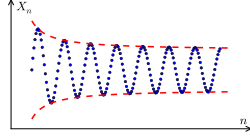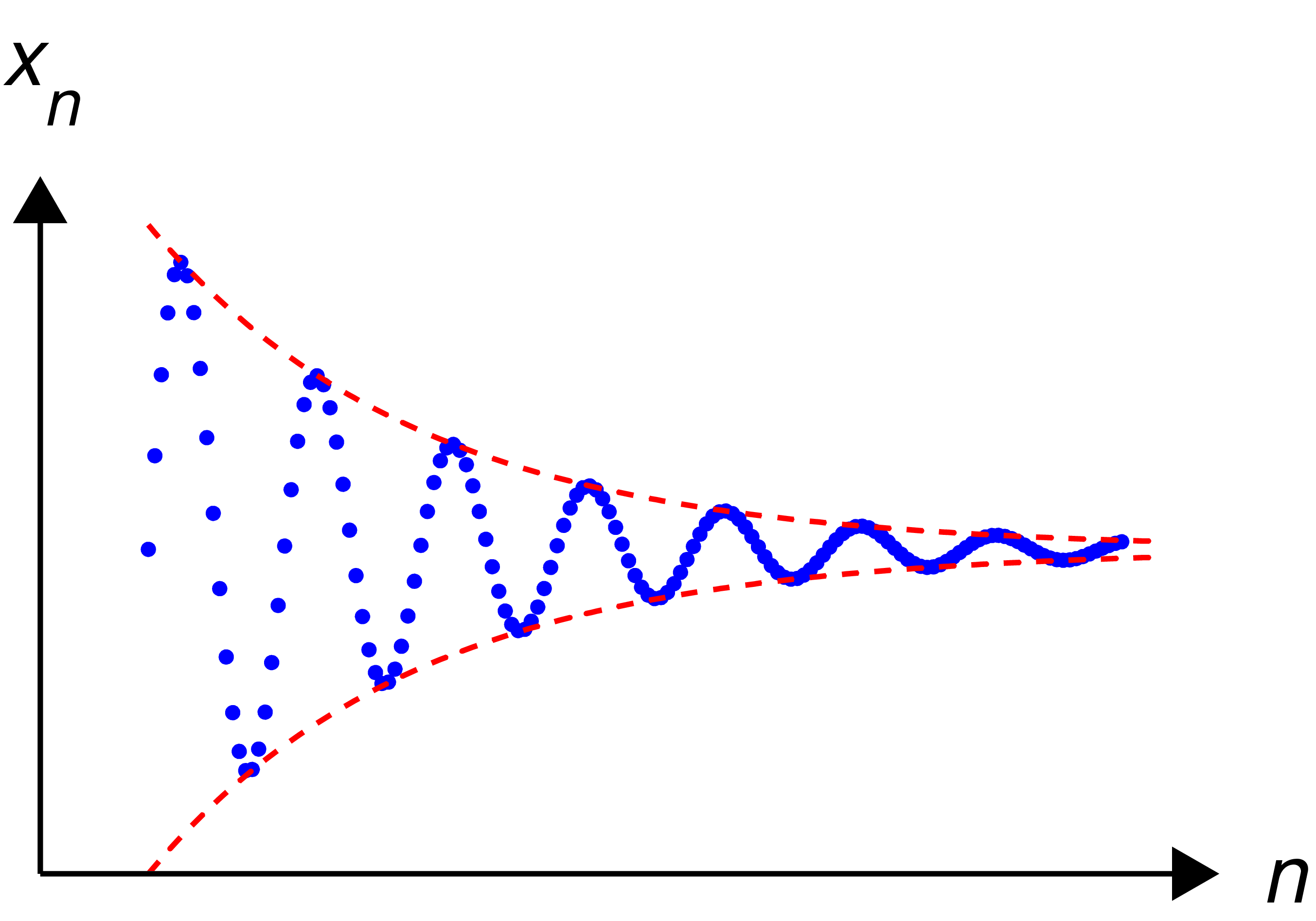Cauchy sequence
A Cauchy or fundamental sequence is a sequence in mathematics, wherein the distance of the follower members in the course of the sequence is always less and even as small as is. Cauchy sequences are named after the French mathematician Augustin- Louis Cauchy and of fundamental importance for the development of analysis.
The limit of a Cauchy sequence of real numbers is always a real number. However, the limit of a Cauchy sequence of rational numbers can also be an irrational number. General converge iff all Cauchy sequences of elements of a metric space if the space is complete. Each partial space metric may be completed by forming equivalence classes of Cauchy sequences.
- 2.1 Definition
- 2.2 completeness
Cauchy sequences of numbers
Definition
A sequence of rational or real numbers is called a Cauchy sequence or fundamental sequence if there is an index to each, so that from this index, all followers are less than apart. Formally, this condition as
Write, where the value of a number represents.
Comments
- The definition can also be replaced, and also by.
- Equivalent to this definition, one can also require that there is even the smallest positive number an interval of length, lie in the almost all followers.
- This definition largely corresponds to the definition of convergent sequences, but without using the concept of the limit of a sequence. Cauchy sequences have therefore been previously referred to as " in itself convergent sequences " or " concentrated consequences."
Examples
- The result is a Cauchy sequence. You can claim a select to an arbitrarily predetermined so that is fulfilled. Are now chosen at random, then applies
- The result is not a Cauchy sequence. Be elected to and an arbitrary natural number. Then you can select and it is always
Completeness
There are sequences of rational numbers whose followers are piling up in the manner described, but without having a limit in the set of rational numbers. One example is the sequence of rational numbers with the creation specification (see Heron method)
This sequence is a Cauchy sequence, but it has as limit the irrational number and therefore does not converge within the set of rational numbers. The problem that the set of rational numbers many limits of Cauchy sequences are not included, led to the idea to the completion of the number range on the set of real numbers.
Cauchy sequences in metric spaces
Definition
More generally we define the notion of Cauchy sequence for metric spaces, so any amount on which it is given a metric. A sequence of elements is then called Cauchy sequence if
Applies. Thus, for every real one index so that for all natural numbers, the distance of the respective followers.
A geometric formulation is equivalent to: for each there is a point and an index so that all followers are from in the open ball of radius around the point. This version differs only by the definition of convergence that here the focus may depend on the radius, while the convergence must be at the threshold of independence.
Completeness
Every convergent sequence in a metric space is a Cauchy sequence. Converges namely a sequence to a limit, then there is an index to each, so that applies to everyone. By the triangle inequality for metric spaces then follows for all
And the result is thus a Cauchy sequence. However, the reverse direction does not necessarily have to be true, which ultimately led to the introduction of complete spaces. In a complete space definition, every Cauchy sequence has a limit and the concept of convergent sequence coincides with the notion of Cauchy sequence. Each incomplete metric space, however, can be completed by forming equivalence classes of Cauchy sequences.










